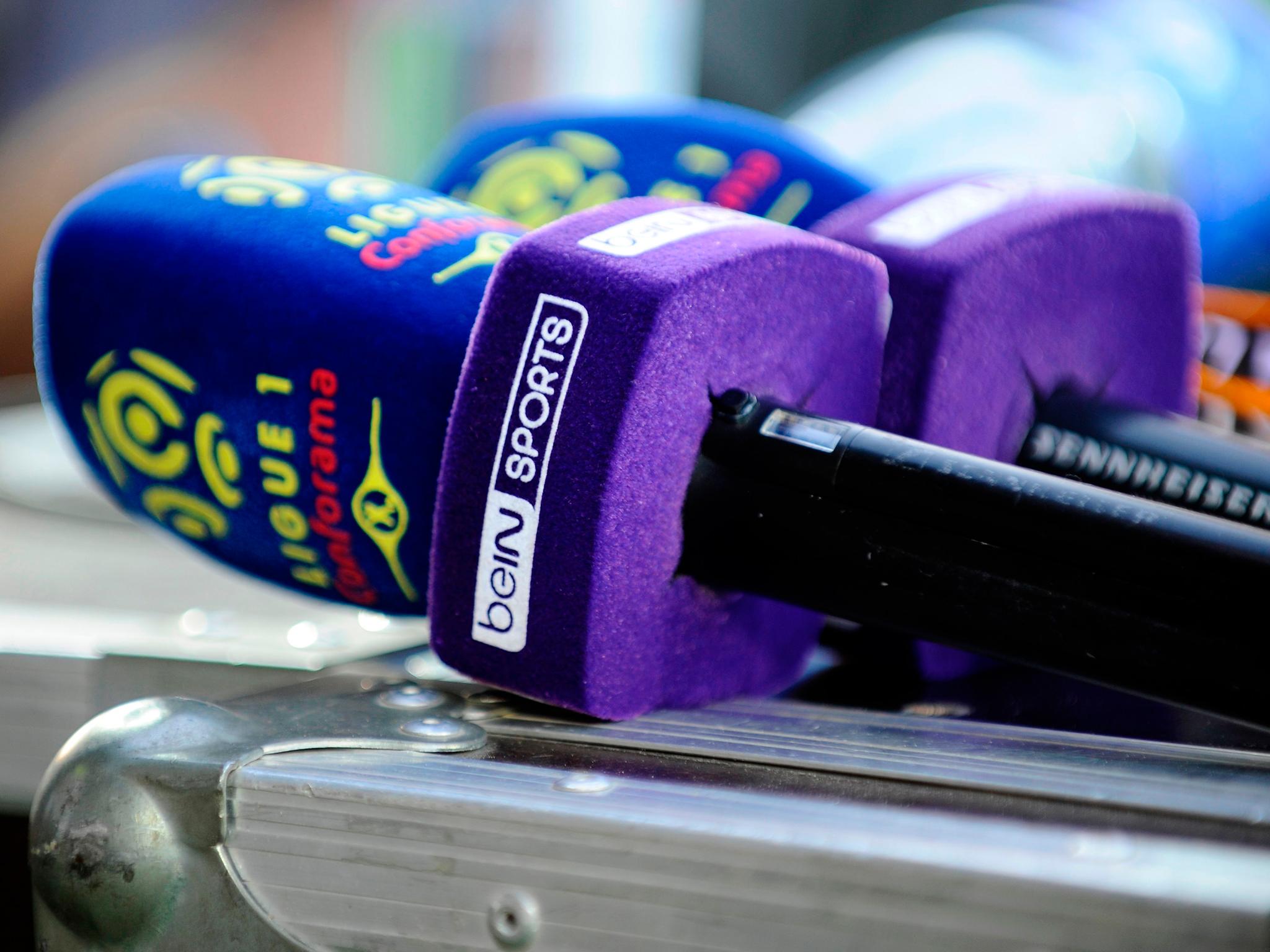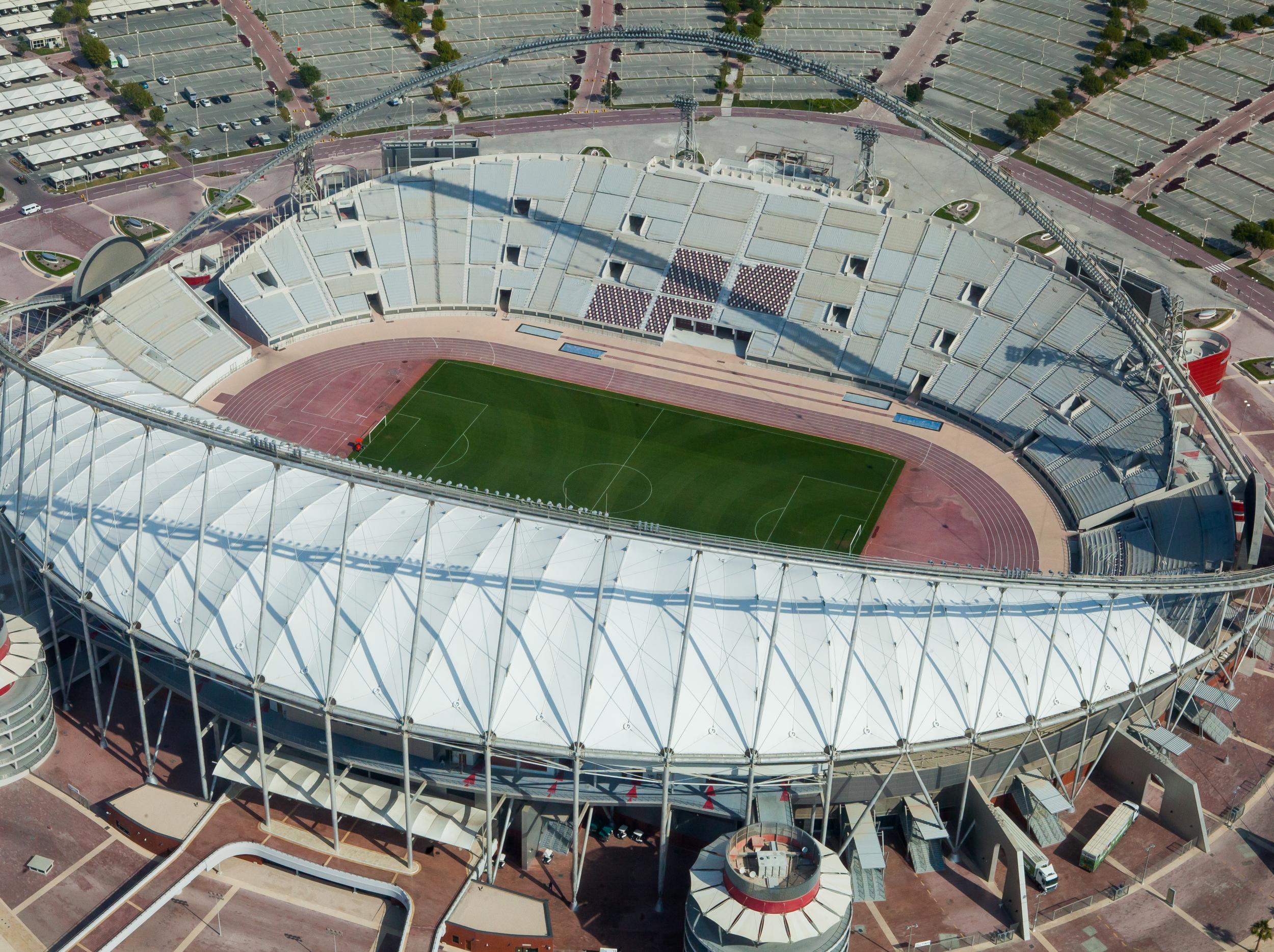World Cup 2018: All 64 matches to be shown illegally in Saudi Arabia after Qatar channel beIN Sports banned in diplomatic row
Saturday's FA Cup final is also set to be pirated on what is thought to be a delayed re-broadcast of the Qatari sports channel

Your support helps us to tell the story
From reproductive rights to climate change to Big Tech, The Independent is on the ground when the story is developing. Whether it's investigating the financials of Elon Musk's pro-Trump PAC or producing our latest documentary, 'The A Word', which shines a light on the American women fighting for reproductive rights, we know how important it is to parse out the facts from the messaging.
At such a critical moment in US history, we need reporters on the ground. Your donation allows us to keep sending journalists to speak to both sides of the story.
The Independent is trusted by Americans across the entire political spectrum. And unlike many other quality news outlets, we choose not to lock Americans out of our reporting and analysis with paywalls. We believe quality journalism should be available to everyone, paid for by those who can afford it.
Your support makes all the difference.A diplomatic row means all 64 matches of the World Cup will be shown in Saudi Arabia on a pirated service, after a sports channel in rival Qatar, which owns the broadcast rights, was banned.
The extraordinary situation arose following a spat between the two countries last June which led to beIN Sports being caught up in a trade ban between the two countries.
As well as the World Cup, the Doha-based channel owns the rights to broadcast the Premier League, Champions League and FA Cup final across the Middle East.
Shortly after the dispute started the Saudis banned the sale of beIN broadcast boxes and stopped existing customers from paying subscriptions to the channel.
Instead the content will be available via a pirated feed on a channel called beOutQ, which is ‘geo-locked’ so only internet users in the desert kingdom who pay £80 for decoder boxes can access it.
beOutQ broadcasts exactly the same transmission as beIN, with the same studio pundits, only with a ten second delay and the beOutQ logo superimposed.
Bosses at beIN have spent £120,000 trying to find out how the Saudi-based station is tapping into the footage so they can cut off the supply.
But so far all they have been able to do is trace the BeOutQ signal to the Saudi capital, Riyadh.
Tom Keaveny, Managing Director of beIN, said: “The pirated signal is being transmitted by the Riyadh-based satellite provider Arabsat, whose largest shareholder is the Kingdom of Saudi Arabia.”
Keaveny added that the BeOutQ operation “takes industrial scale knowledge and ability and multimillion dollar funding. This isn’t someone in their bedroom”.
Representatives for Saudi Arabia’s Ministry of Culture and Information did not respond to messages from The Independent seeking comment.
It’s thought that the Saudi channel is able to re-broadcast content delivered to a legitimate beIN subscriber.
Each customer has a unique identification number, called a fingerprint, and normally this can be detected if fraud is being carried out and the supply cut off.
But the BeOutQ operation has found a way of hiding the finger print.
Kieron Sharp, CEO of FACT, a British anti-piracy company which assists SKY with its prosecutions, said: “We are aware of the immense frustration and anger that comes out of beIN who are unable to stop what appears to be in-effect state-sponsored piracy.

“For beIN to lose market share to an illegal operator is causing them huge problems. Even though some may feel it’s not what it was, the FA Cup Final is still a massive thing around the world.
“In the past the Premier League has taken action against piracy in places like the Far East, where they’ve worked with law enforcement operators in the country.
“But it gets difficult when there could be a government involved. Everyone says it’s state-sponsored piracy. But it’s difficult to counter, because the powers are pretty limited.”
An FA Spokesperson said: “beIN are a valued international broadcast partner of The FA. We take issues of piracy seriously and support beIN with their anti-piracy efforts.”
As well as the FA Cup the last few months of the 2017-18 Premier League season were also pirated by beOutQ.
A Premier League spokesman said: “The Premier League operates a significant anti-piracy programme in a range of countries to protect the copyright of the League and our clubs.
“Like all content creators and rights owners, our business model is predicated on the ability to market and sell protected rights and we will take all available action to support the investment made in the League by our legitimate broadcast partners.”
Mr Sharp said it was the responsibility of rights suppliers – such as the FA and Premier League – to ensure that these rights aren’t taken by others.
“I’m sure the Premier League are working out what to do, which is why they’re not saying too much about it,” he added.

Sophie Jordan, general counsel of beIN MEDIA GROUP, said: “For the past 10 months, beoutQ and its Saudi backers have been illegally pirating our proprietary sports content on an industrial scale, brazenly stealing IP and making it their own. If left unchecked, this will have a dramatic and long-term impact on the grass roots funding of the sports that we all enjoy.”
In June last year Saudi Arabia, the United Arab Emirates, Bahrain and Egypt launched a diplomatic and transport blockade of Qatar accusing it of cosying up to Iran and supporting terrorism, which Doha denies.
beIN has paid billions of pounds to secure exclusive rights to the world’s most prestigious tournaments, sometimes offering more than the market value to secure its primacy in the Middle East.
But now it faces the nightmare scenario of watching a bootlegging satellite service offering access to all 64 matches of the World Cup, and being unable to stop it.
Despite saying it supports beIN’s anti-piracy efforts, Fifa has been reluctant to openly criticise Saudi Arabia.
Observers point to recently-announced Saudi investment in a £15bn Club World Cup which football’s governing body hopes to launch in 2021.
Update (25/5/18): Representatives of the Kingdom of Saudi Arabia contacted The Independent after this article was published to say that neither Arabsat nor the Kingdom has any affiliation with beOutQ. Furthermore, they say that Arabsat does not control the content transmitted on its satellites.”
Join our commenting forum
Join thought-provoking conversations, follow other Independent readers and see their replies
Comments